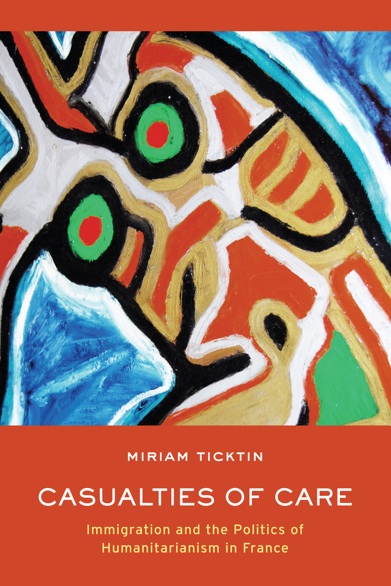
Much has been said about the allegations of sexual assault by former IMF-head Dominique Strauss Kahn. The case was dismissed because the victim, Nafissatou Diallo, was not considered a credible witness ; while there were several questions raised about her honesty, particular attention was given to the fact that she had lied on her asylum application, and claimed – falsely — to have been gang raped in her native country of Guinea. In all the discussion and outrage around this case, what has gone unexplored is the asylum system, and why her claim might have been accepted in the first place.
The numbers of refugees accepted in the United States – and in the global North more generally — have been steadily decreasing, and one’s case must be truly exceptional in order to be legally recognized. Proving one’s worthiness to gain asylum requires evoking the compassion of the asylum officials, and demonstrating that the persecution one is fleeing is particularly horrendous. However one may have been tortured, violated or threatened, today, in a strange and recent twist, one of the more promising ways to illustrate a “a well-founded fear of persecution” is through the language of sexual violence.
I found this to be true in my research with asylum claimants in both France and the United States. The legal and moral weight carried by stories of sexual violence is a recent phenomenon, an unexpected result of the successful lobbying of women of the global north and south in the 1990s to create the category of “violence against women.” This category, now called “gender-based violence,” has been the subject of increasing attention, from the Akayesu decision of the ICTR (International Criminal Tribunal for Rwanda) in 1998 which allowed rape to be considered as a crime against humanity, to the United Nations Security Council’s three recent resolutions on sexual violence, passed between 2008 and 2010. Gender-based persecution is now also recognized officially and unofficially in various countries as a way to claim asylum.
Those of us who have struggled and pushed to change a system that condones gender-based violence applaud this attention ; and yet cases such as DSK’s suggest that there must be a reckoning with when the focus on gender-based violence works to help those subject to it, and when it works to accentuate already extant inequalities, punishing rather than helping those subject to violence.
Not everyone subject to gender-based violence will get heard, in the courtroom or elsewhere ; not all gender-based violence is considered equal. Indeed, from what I saw in my research with immigrants and asylum-seekers, and with government officials, lawyers, doctors and NGOs working with them in both France and the United States, gender-based violence gets divided up into differences of kind – indeed, we might even call them different species — and are adjudicated accordingly.
Species A includes the kind that makes the United States go to war in places like Iraq and Afghanistan (such as when George W. Bush suggested the U.S. should attack Iraq for the sake of its women), and the kind that allows for legal bans on veils and niqabs in places like France and most recently in Holland, in the name of protecting women. It also includes rape in conflict zones, in places like the DRC or Guinea or Sudan, where people are committing these forms of violence against what are considered to be their own people.
As in colonial times, recognizing this kind of violence provides us with evidence that our societies are better, that we are more enlightened because we treat our women better. Giving asylum to people subject to this kind of violence helps us to feel good about ourselves. After all, asylum helps to differentiate “us” from “them” ; we provide protection to people fleeing practices that they would be in danger of over “there,” but not over “here” ; granting asylum always implies a judgment about the place the asylee seeks refuge from. This is not to say these forms of violence are not abhorrent, only to ask which forms of violence and suffering get recognized.
Species B on the other hand is represented as the kind of violence perpetuated by people “like us.” This species of violence is not the kind that can be ethnicized and cordoned off from the American or French mainstream ; it does not allow for the same claim to the moral high ground, but forces us to look more closely at people we think we can trust – people that remind us of ourselves. This is the kind DSK was accused of ; as a commentator on the television station “France 24” indicated on September 18th in his comments about the first public interview DSK had given since his arrest four months previously, “He seemed nervous, but wouldn’t we all if we were in his shoes ?”
Species B is also the kind of violence the United Nations peacekeepers were accused of in Haiti, those who raped a Haitian boy in July, except that in their case, the video footage of the rape forces the recognition of its veracity. Still, the accusation of rape does not carry the same moral legitimacy ; people begrudgingly acknowledge that peacekeepers – people like “us,” who want to help — may rape those whom they protect. What keeps these species of violence separate is that these peacekeepers’ actions are seen as an exception – a few soldiers gone bad — while the Species A kind of violence is considered the norm, even part of the ‘culture’, for the people who commit it.
Nafissatou Diallo told the kind of story about Species A violence that she thought the asylum system was ready (and wanted) to hear ; but this actually tells us very little about her or the reasons she wanted to leave Guinea. We still do not know whether she had a well-founded fear of persecution or not. I spoke with many people who had experienced what seemed to me to be unthinkable forms of violence or persecution, but admitted that they crafted slightly different stories when they made their asylum claims, because they understood that these would work better in the courtroom.
For instance, they know that torture is given greater legitimacy when proof can be located on their bodies rather than in their words, but they may not have the requisite scars, even if they were tortured. Or perhaps the violence they experienced was quite unexceptional, such as the torture of those associated with the Tamil Tigers by the Sri Lankan state – stories that were a dime a dozen at a particular moment. Whatever the case, asylum seekers know that what they have experienced and what works in the courtroom may be two different things.
While we might still blame Diallo for lying and ruining it for others who really have been gang raped, her lie is only a small part of a much bigger story about a system that accepts increasingly few refugees and requires ever-more sensational stories to qualify, stories that make “us” – in the country of refuge — feel good about ourselves. The backdrop of course is a global context of ever greater inequality between the rich and the poor, which has in turn led to a politics of fear and security in places like the United States and France, conflating asylum seekers and immigrants and closing the borders to as many as possible of all of them. This system requires asylum-seekers to make the kinds of claims they know will be heard, or risk being held in immigration prisons or deported back to dangerous situations. The real injustice for Diallo is that because of this larger story, she is now disqualified from making her claim about Species B violence.
If we want asylum systems to do what they were instituted to do with the Geneva Convention in 1951, and to honor the claims of those fleeing well-founded fears of persecution, and if we want the attention to gender-based violence to allow for a new system of norms and laws that both prevent and penalize such violence and help to institute gender equality, we must face the fact that gender-based violence is not made up of two species – not in terms of the types of violence, nor the types of people who commit this violence.
If we are to realize the laudable goals of those who struggled to recognize “gender-based violence” in the first place, we must take on the other forms of inequality and discrimination in our world that are being perpetuated not despite, but in the name of fighting against gender-based violence.


